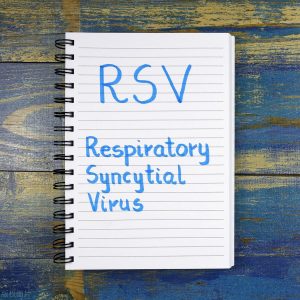Unraveling the Mystery of RSV: Symptoms, Transmission, and Prevention
RSV: The Silent Threat
Respiratory syncytial virus (RSV) has recently caused quite a stir in many places. Originally thought to be the exclusive enemy of infants and young children, this year's situation is a little unusual and many adults are falling victim to it as well. So, what are the symptoms of RSV infection in children and adults? Why is this year's departure from the norm causing distress for adults? So how do we prevent and treat it?

Learn about RSV
RSV, as the name suggests, is a respiratory "syncytial" virus with powerful power, and the cells infected by the virus are vividly compared to "syncytia". This RNA virus is easily spread through droplets and close contact, and its symptoms mainly affect the upper respiratory tract. However, it does not discriminate based on age but spans all age groups, particularly affecting infants under 2 years of age and immunocompromised adults.
respiratory syncytial virus symptoms
Typical symptoms in children include fever, cough, nasal congestion and runny nose. These symptoms are more pronounced in younger children, with children under 2 years old likely wheezing and infants under 6 months old at risk of suffocation and respiratory failure. In contrast, symptoms of RSV infection in adults are similar to those of the common cold, such as low-grade fever, cough, congestion, and runny nose.

Why RSV is rampant among adults this year
Experts attribute the surge in adult RSV cases to strict COVID-19 prevention measures. When epidemic prevention measures are strict, the chance of RSV infection decreases and RSV antibodies gradually decrease. However, when control measures are relaxed, gaps in people's RSV immunity naturally lead to increased infection rates.
RSV prevention and treatment
To prevent RSV infection, we can take daily measures such as wearing masks, washing hands frequently, and providing adequate ventilation. These seemingly simple actions can significantly reduce the spread of the virus.
As for treatment, there are currently no specific drugs for RSV. However, it is a self-limiting disease and generally does not require special treatment. Symptomatic treatment, such as taking antipyretics when you have a fever and expectorants when you cough, coupled with adequate rest, will help you recover gradually.
in conclusion
There is no need to panic when faced with the RSV threat. By taking daily protective measures and maintaining a healthy lifestyle, we can effectively reduce the risk of infection. At the same time, for those who have been infected, they should maintain an optimistic attitude, actively cooperate with treatment, and believe that the body's recovery ability can defeat the disease.